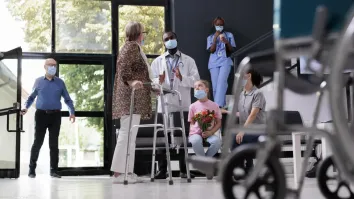
Australia to invest $180.9m for hospital staffing
It will be used to facilitate the hiring of 250 additional healthcare workers.
Australia is set to invest $180.9m (A$274m) to address staffing shortages at new and upgraded hospitals across New South Wales in the 2024-25 NSW Budget.
The Essential Health Services Fund will facilitate the hiring of 250 additional healthcare workers for these facilities. These professionals will be deployed to hospitals scheduled to become operational in the next financial year, catering to the needs of communities with growing and ageing populations.
Benefiting hospitals include Prince of Wales, the newly constructed Tweed Hospital, and facilities in Bowral, Sutherland, Wentworth, Cowra, Cooma, Glenn Innes, and Griffith.
Prince of Wales Hospital will receive additional staff to support its new emergency department, intensive care unit, and broader hospital expansion. The new Tweed Hospital will see an increase in health workers to enhance its overnight and day bed capacity, as well as emergency department and outpatient services.
This funding will also be allocated to meet the increased demand for health services driven by the state’s ageing and growing population.
Health Minister Ryan Park emphasises the critical need for adequate staffing in conjunction with new hospital infrastructure. “We can’t risk the situation left to us by the previous Government of ‘ghost hospitals’ where funding was allocated for the bricks and mortar but not the additional health workers, nurses and doctors to operationalise services.”
Park stressed the detrimental effects of underinvestment in health workers, leading to a strained workforce and ongoing repercussions.
“We need a fully staffed healthcare system that is responsive and well-resourced, because when we back in our health workers, we improve patient outcomes, and that’s exactly what we’re doing,” he said.
The government’s broader strategy includes implementing safe staffing levels, making 1,112 temporary nurses permanent, adding 500 regional paramedics, abolishing the wages cap, and introducing health worker study subsidies.



















 Advertise
Advertise






